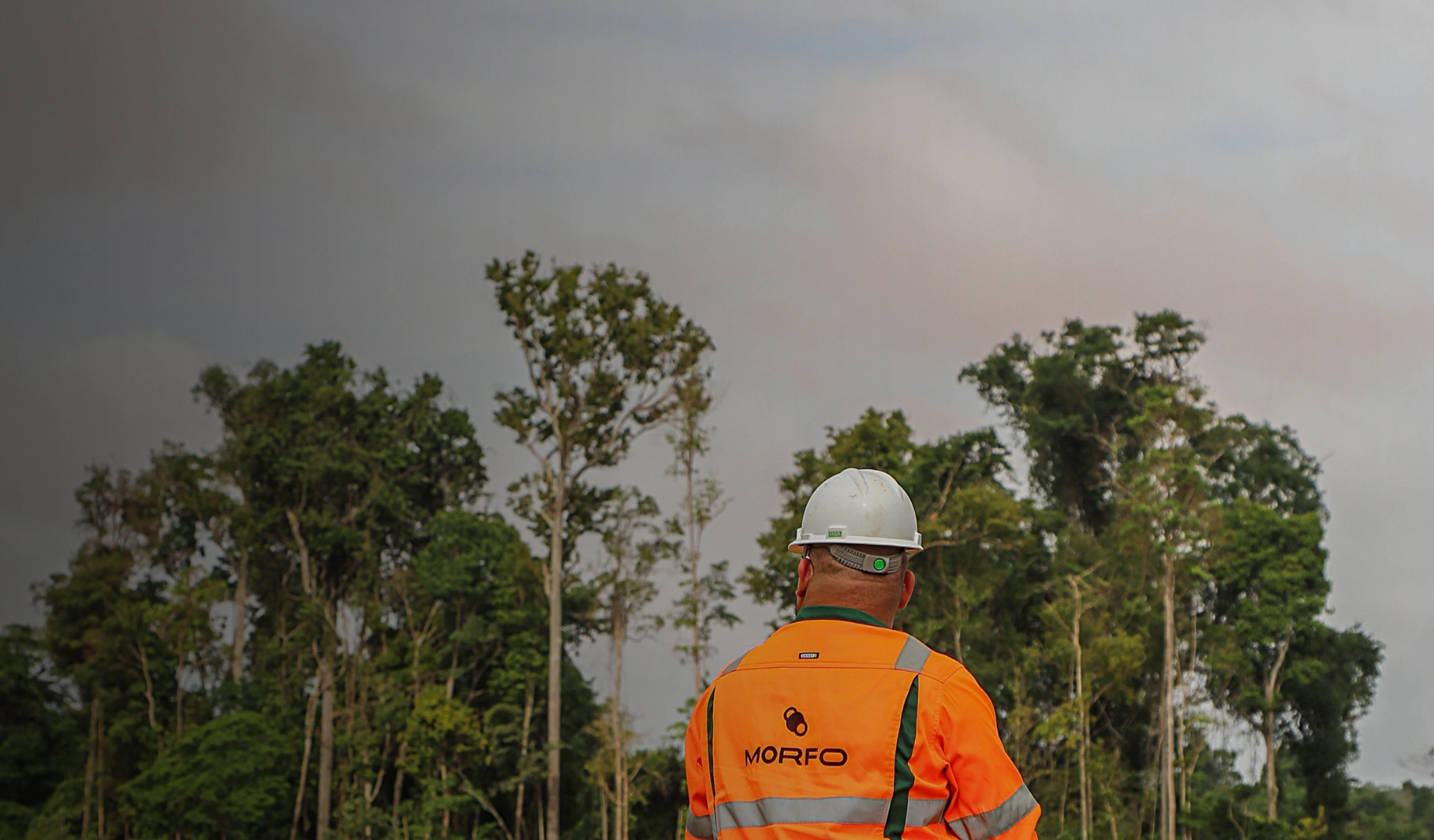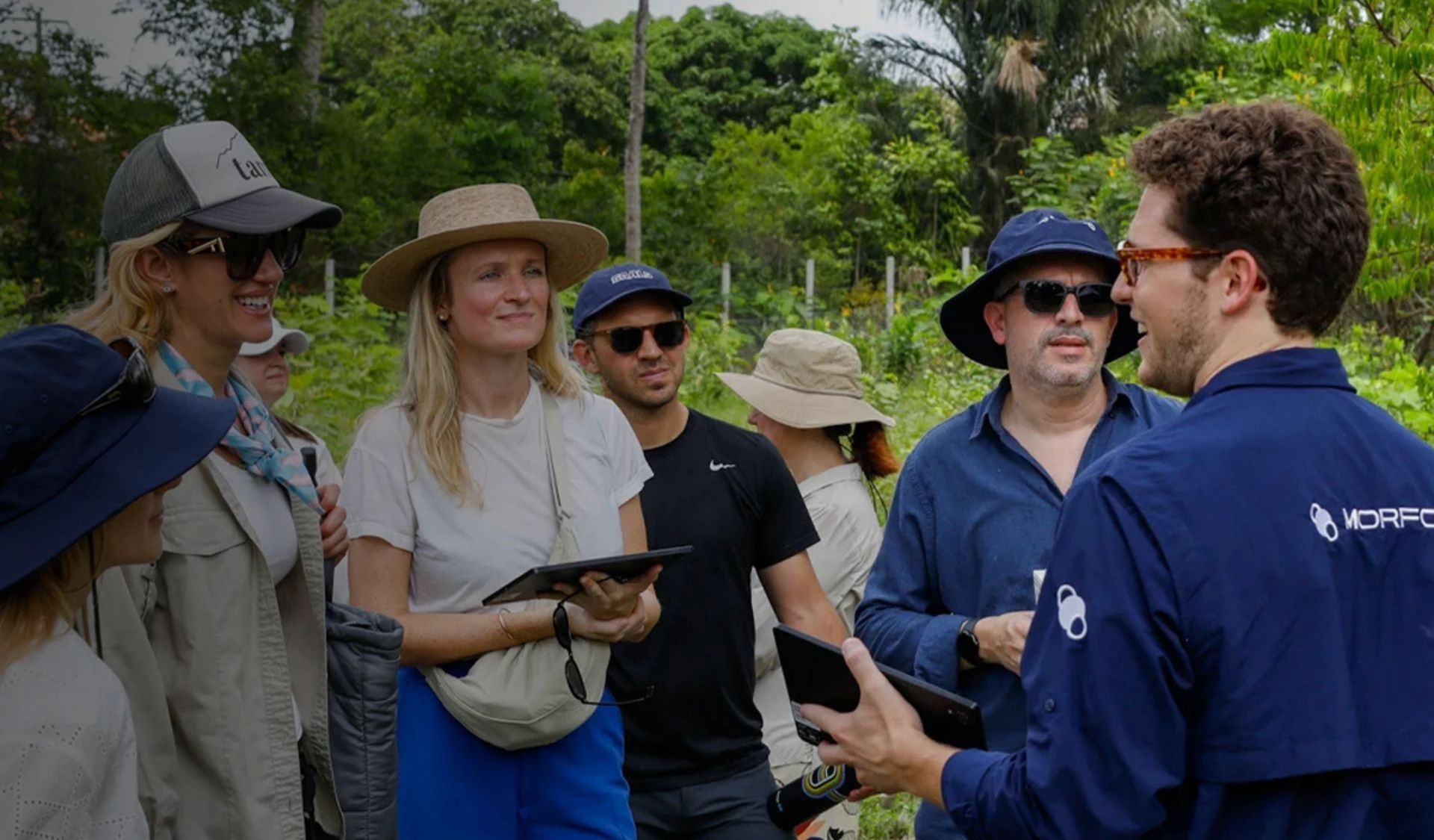MORFO is a large-scale forest ecosystem restoration solution combining the best of forest engineering, drone technology, computer vision and AI. To this day, MORFO only restores tropical and subtropical areas, located in the equatorial zones of South America and Africa, in countries such as Brazil, Gabon and French Guiana. We focus on these parts of the world for several reasons:
- Restoring forest ecosystems doesn't just involve trees: tropical and subtropical forests are home to 50% of the world's biodiversity.
- Tropical ecosystems are some of the planet's most important carbon sinks.
- 51% of the world's forests are tropical and subtropical: there are 360 million hectares available for reforestation in these regions.
- The global scientific community possesses extensive knowledge of tropical ecosystems.
- The MORFO story is also a personal one. It began with MORFO's co-founding brothers, Hugo and Pascal Asselin, who grew up near the Amazon rainforest in French Guiana. Their father worked in the mining industry, and the brothers frequently visited degraded lands impacted by this industry. To them, creating MORFO was a no-brainer.
Where is the tropical biome located?
A biome represents a broad category compromising of several similar ecosystems. A biome is distinguished by its climate, which determines the variety of plants that thrive there. The climate and flora of a biome determine the animal species that inhabit it.
The rainforest biome can be defined by four fundamental elements: abundant annual rainfall, high average temperatures, low soil fertility and exceptionally rich species biodiversity.
There are three main tropical forest zones on the planet, all located between the Tropic of Cancer and the Tropic of Capricorn, with the equator at their center:
- The Amazon Basin in South America
- The Congo Basin in Central Africa
- Southeast Asia

Tropical forests are home to the world's greatest diversity of plants and animals
According to the FAO (2022), nearly 51% of the world's forests are tropical and subtropical and are home to up to 75% of the planet's life. Even more impressive: these ecosystems are home to around 50% of the Earth's known biodiversity. Most of these 3 to 50 million species - of which many of which have yet to be discovered would be wiped out if the rainforest disappeared. There would simply be nowhere else to go.
Tropical ecosystems are one of the planet's most important carbon sinks
Tropical forests are the most important ecosystems for climate regulation and and play a major role in the global carbon cycle.
Tropical forests are humid and very dense, making their carbon sequestration potential gigantic. They store around 46% of the Earth's living carbon reservoir. The Amazon, for example, which makes up half of all tropical forests, stores 450 billion tonnes of CO2 in its trees and soils.
The decision to focus on these areas is driven by our potential for global impact. When MORFO dedicates itself to combating climate change, our vision extends beyond the local sphere. We aim to make a meaningful contribution to the global fight against climate disruption through our restoration efforts.
360 million hectares ready for reforestation in tropical regions worldwide
In only 40 years, a total of 1 billion hectares of forests have been cut down worldwide, the equivalent of a surface larger than China. According to the FAO, the planet loses 5 million hectares of forest per year. NASA warns that at the current rate, tropical forests will disappear by 2100, even though being home to over half of the planet's species.
There are 900 million hectares of forestland available for reforestation on the planet, without any competition with human activities such as agriculture and urbanization. Of these, 51% or 360 million hectares would be located in tropical and subtropical areas.
An interesting aspect of these regions is that forestry regulations often support restoration efforts. Stakeholders and funds are already in established. Thus, MORFO's technology aligns seamlessly with restoration goals in these areas.
We already possess in-depth knowledge of tropical ecosystems
Tropical areas benefit from well-established scientific research, enriched by decades of studies on seeds and forest ecosystems. We have leveraged this research, through various partnerships, to develop our current technology and facilitate large-scale restoration.
That's right, MORFO collaborates with numerous universities and renowned specialist laboratories to carry out ongoing experiments and analyses. This R&D work is an extremely important aspect of our mission, as it enables us to broaden our knowledge of microbiology, agronomy, botany and forestry. We have a seed catalog with over 300 categorized local species and plant between between 10 and 30 native species per reforestation project depending on their particular characteristics.








